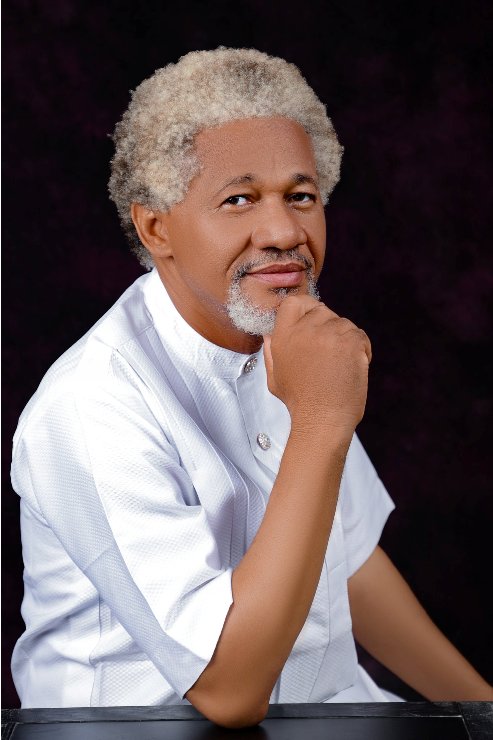
Often times, what is construed as a state’s policy, is a derivative of the leader’s philosophy and what shapes a leader’s philosophy are a combination of favourable/unfavourable political and economic circumstances. Governor Ayade assumed the leadership of Cross River at a time when the state’s economy was grappling for survival in the turbulent waters of recession; a time the National Debt Management Regime, officially, declared Cross River an insolvent state which meant that the state could no longer borrow for whatever reasons and our revenue posture by national index, was the worst, ever, in history.
People started preparing their minds for the worst: fiscal consolidation and welfare retrenchment, as cost containment alternatives, were already being considered at different quarters. These are two extreme cyclical policies considered as the worst night mares to citizens because their harsh distributional impacts are expressed through economic hardship with tortuous survival. Crossriverians who were aware of the circumstances expected Governor Ayade to carry out retrenchment of workers with complementary high-rise in taxes and wages to keep the state running. If Ayade had opted for this, he could have attracted justification from policy experts because Duke, when he was Cross River State Governor, applied welfare retrenchment when the state was even in bounty of surplus and called it “down-sizing”.
But on the contrary, Governor Ayade saw no sense in shrinking a state civil service which has been aging for the past 30 years without general employment to overhaul it; he saw that further obnoxious policies like increased levies/taxes and retrenchment will finally cripple a people that were already made weary by the economic harshness occasioned by the trending recession in his time; he saw no sense in shifting the burden of recession upon the shoulders of citizens, when the state’s shoulders, as government is large and strong enough to bear the weight of recession.
He saw that when too much burden is placed upon the people, the unbearable economic condition would likely result in systemic distress with social tension and vices as symptoms. The Governor shook the foundation of history by expanding government beyond expectation by increasing ministries from the initial 15 to 28 in his first term and 39 in his second term, departments were increased from 20 to 80 with several hundreds of units, bureaus, boards, agencies and commissions which instantly engaged more than 4,000 crossriverians. With the creation of new MDAs, came the availability of job vacancies in both public and civil service.
The engagement of more than 4000 and recently, 20,000 people in the process of government expansion reduced the burden of dependants in many families across the State and increased the volume of cash in circulation which shielded the state from the prevalent revenue shocks because, unlike before, businesses started recording high yields of profits from rapid turnovers, even churches gave testimonies of how their offerings and tithes have tripled within this period of government expansion which had made many churches proceed into executing prioritized projects without going through the rigours of fund raising.
With so much cash in circulation, there is the tendency for demand to outstrip supply and result in stagflation, (a combination of inflation and stagnation in the economic activities) which will amount to creating another problem, while trying to solve one. Consequently, Ayade brought in the concept of government mediated private sector where industries of various consumables are being established in the state to take care of the increasing demands elicited by high-rise volume of cash. With this, supplies from industries will neutralize the high demands and spontaneously, create the equilibrium.
Some have argued that the rise of government mediated private sector in the state will price out smaller businesses out of Cross River State. But this is not designed by the governor to create unhealthy competition, but to create a commercial situation of consummate harmony where the smaller businesses and giant private sector will complement each other in the commercial chain. Let me explain: the local fabric dealer in Ugep will see Calabar Garment Factory as the closest place to purchase fabrics instead of going to Onitsha which is four times the transportation cost to Calabar, aside the risk. The Ekori Tooth Pick company can make things easy for cutlery and provision shops in Calabar, Ikom, Ogoja etc by delivering to their door-steps, taking off the burden of transportation from these firms. This will reduce the price of toothpick for residents in Cross River. This examples apply to other companies and their retailer vendors.
The spill overs of Ayade’s expansionary policy are numerous: it could be recalled that at the first quarter of 2018, pursuant to Ayade’s expansionary policy, there was employment of 600 teachers at the State Secondary Education Board. In the second quarter of 2018, there was employment of about 700 staff in the Cross River State Water Board. In the last quarter of 2018, we witnessed the appointments of 1000 teachers into the State Universal Basic Education (SUBEB) and of recent is the enrolment of 20,000 employees to fill in vacancy positions in the civil service. Worthy of note is the re-absorption of over 1000 staff and Magistrates who were illegally employed into the State civil service.
It is on record that Ayade has the largest cabinet in Nigeria with the appointment of over 6000 appointees, setting a record of consistent payment of salaries and pensions from the inception of his administration. He has never owed salaries even with the meager federal allocation depleted by deductions from the severe debt portfolio he inherited.
Ayade’s expansionary policy is intended to ensure continuous recycling of revenue; It is intended to boost the volume of cash in circulation and ensure that this cycling, at any point, is not stalled because it is the life of any economy. This process pulled the state out of recession and created economic stability even when the country was in recession.
People have been asking how Ayade raises money for all these when the state’s allocation is not even up to N1billion and her IGR is less than N600 million average on monthly basis? Check my next episode on Ayade’s concept of intellectual money.
Nate Otaba is the Special Assistant, New Media to Governor Ben Ayade.
He writes from Calabar









